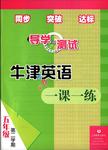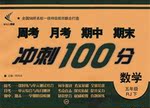题目内容
love charity(慈善) shops and so do lots of other people in Britain because you find quite a few of them on every high street. The charity shop is a British institution, selling everything from clothes to electric goods, all at very good prices. You can get things you won’t find in the shops anymore. The thing I like best about them is that your money is going to a good cause and not into the pockets of profit-driven companies, and you are not damaging the planet, but finding a new home for unwanted goods.
The first charity shop was opened in 1947 by Oxfam. The famous charity’s appeal to aid postwar Greece had been so successful it had been flooded with donations(捐赠物). They decided to set up a shop to sell some of these donations to raise money for that appeal. Now there are over 7,000 charity shops in the UK. My favourite charity shop in my hometown is the Red Cross shop, where I always find children’s books, all 10 or 20 pence each.
Most of the people working in the charity shops are volunteers, although there is often a manager who gets paid. Over 90% of the goods in the charity shops are donated by the public. Every morning you see bags of unwanted items outside the front of shops, although they don’t encourage this, rather ask people to bring things in when the shop is open.
The shops have very low running costs: all profits go to charity work. Charity shops raise more than £110 million a year, funding(资助)medical research, overseas aid, supporting sick and poor children, homeless and disabled people, and much more. What better place to spend your money? You get something special for a very good price and a good moral sense. You provide funds to a good cause and tread lightly on the environment. (08天津卷)
小题1:The author loves the charity shop mainly because of _______.
小题2:The first charity shop in the UK was set up to ____.
小题3: Which of the following is TRUE about charity shops?
小题4: Which of the following may be the best title for the passage?
The first charity shop was opened in 1947 by Oxfam. The famous charity’s appeal to aid postwar Greece had been so successful it had been flooded with donations(捐赠物). They decided to set up a shop to sell some of these donations to raise money for that appeal. Now there are over 7,000 charity shops in the UK. My favourite charity shop in my hometown is the Red Cross shop, where I always find children’s books, all 10 or 20 pence each.
Most of the people working in the charity shops are volunteers, although there is often a manager who gets paid. Over 90% of the goods in the charity shops are donated by the public. Every morning you see bags of unwanted items outside the front of shops, although they don’t encourage this, rather ask people to bring things in when the shop is open.
The shops have very low running costs: all profits go to charity work. Charity shops raise more than £110 million a year, funding(资助)medical research, overseas aid, supporting sick and poor children, homeless and disabled people, and much more. What better place to spend your money? You get something special for a very good price and a good moral sense. You provide funds to a good cause and tread lightly on the environment. (08天津卷)
小题1:The author loves the charity shop mainly because of _______.
| A.its convenient location |
| B.its great variety of goods |
| C.its spirit of goodwill |
| D.its nice shopping environment |
| A.sell cheap products |
| B.deal with unwanted things |
| C.raise money for patients |
| D.help a foreign country |
| A.The operating costs are very low. |
| B.The staff are usually well paid. |
| C.90% of the donations are second-hand. |
| D.They are open twenty-four hours a day. |
| A.What to Buy a Charity Shops. |
| B.Charity Shop: Its Origin & Development. |
| C.Charity Shop: Where You Buy to Donate. |
| D.The Public’s Concern about Charity Shops. |
小题1:C
小题2:D
小题3:A
小题4:C
本文主要介绍了慈善商店的基本特色以及慈善商店的创建与发展。
小题1:推理判断题。由第一段第四句"The thing I like best about them is that your money is
going to a good cause”“我“最喜欢慈善商店的一点是你的钱用于有用的事业可推断出C
项为正确答案。"goodwill”含义为“好意”
小题2:事实细节题。由第二段第二、三两句"the famous charity’s appeal to aid postwar Greece
had been so successful……”可知第一个慈善商店的建立是为了筹钱援助战后的希腊。而从文章的第一段可知作者是英国人。因此,D 项正确。C项中的"patients”未提。
小题3:事实细节题。由第四段第一句"The shops have very low running costs”可知A项正确。"running”相当于"operating”含义为“运营”由第三段第一句中"volunteer(志愿者)"可知B项不正确。由第三段第二句可知慈善商店中90%以上的商品为公众捐赠,但并不能推出是“二手货”,故C 项不正确。D项未提
小题4:主旨大意题。本文的最后一句为主题句。由"a good moral sense (好的道德感)"和"You provide funds to a good cause(你为一项有意义的事业提供资金)"可知 C项为最好题目。"Charity Shop: Where You Buy To Donate. (慈善商店----一个买东西就相当于捐款的地方。)

练习册系列答案
 导学与测试系列答案
导学与测试系列答案 新非凡教辅冲刺100分系列答案
新非凡教辅冲刺100分系列答案
相关题目